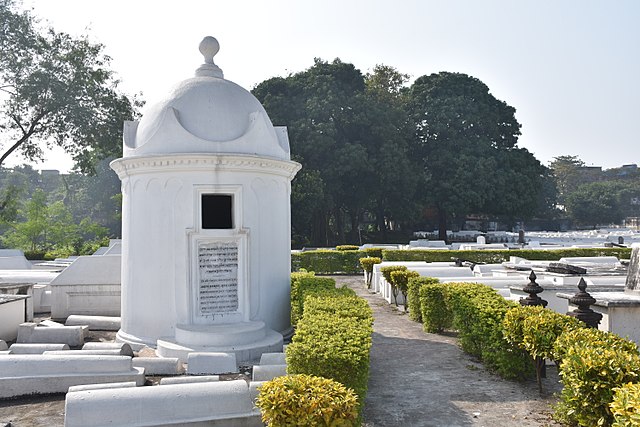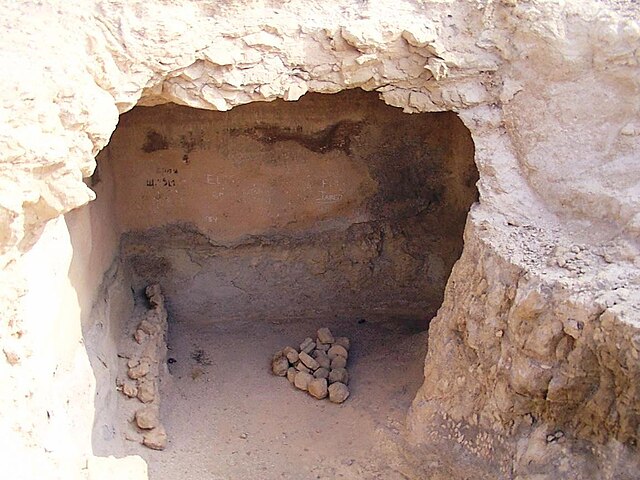A genizah is a storage area in a Jewish synagogue or cemetery designated for the temporary storage of worn-out Hebrew-language books and papers on religious topics prior to proper cemetery burial.
A genizah at the Narkeldanga Cemetery, in Kolkata, India.
A possible geniza at Masada, eastern Israel
Modern genizah collection receptacle on street in Nachlaot, Jerusalem
Judaism considers some names of God so holy that, once written, they should not be erased: יהוה, אֲדֹנָי, אֵל, אֱלֹהִים, שַׁדַּי, and צְבָאֽוֹת ; some also include I Am that I Am. Early authorities considered other Hebrew names mere epithets or descriptions of God, and wrote that they and names in other languages may be written and erased freely. Some moderns advise special care even in these cases, and many Orthodox Jews have adopted the chumras of writing "G-d" instead of "God" in English or saying Ṭēt-Vav instead of Yōd-Hē for the number fifteen or Ṭēt-Zayin instead of Yōd-Vav for the Hebrew number sixteen.
Hebrew name of God inscribed on the page of a Sephardic manuscript of the Hebrew Bible (1385)
Biblical text on a synagogue in Holešov, Czech Republic: "HaShem (ה׳) kills and makes alive; He brings down to Sheol and raises up." (1 Samuel 2:6)
Sign near the site of the Safed massacre, reading הי״ד (H.Y.D., abbreviation of הַשֵּׁם יִנקּוֹם דָּמו HaShem yinkom damo, 'may HaShem avenge his blood').






